So many mouths to feed! Wetlands & Wildlife Center hosts fun-filled ‘baby shower’
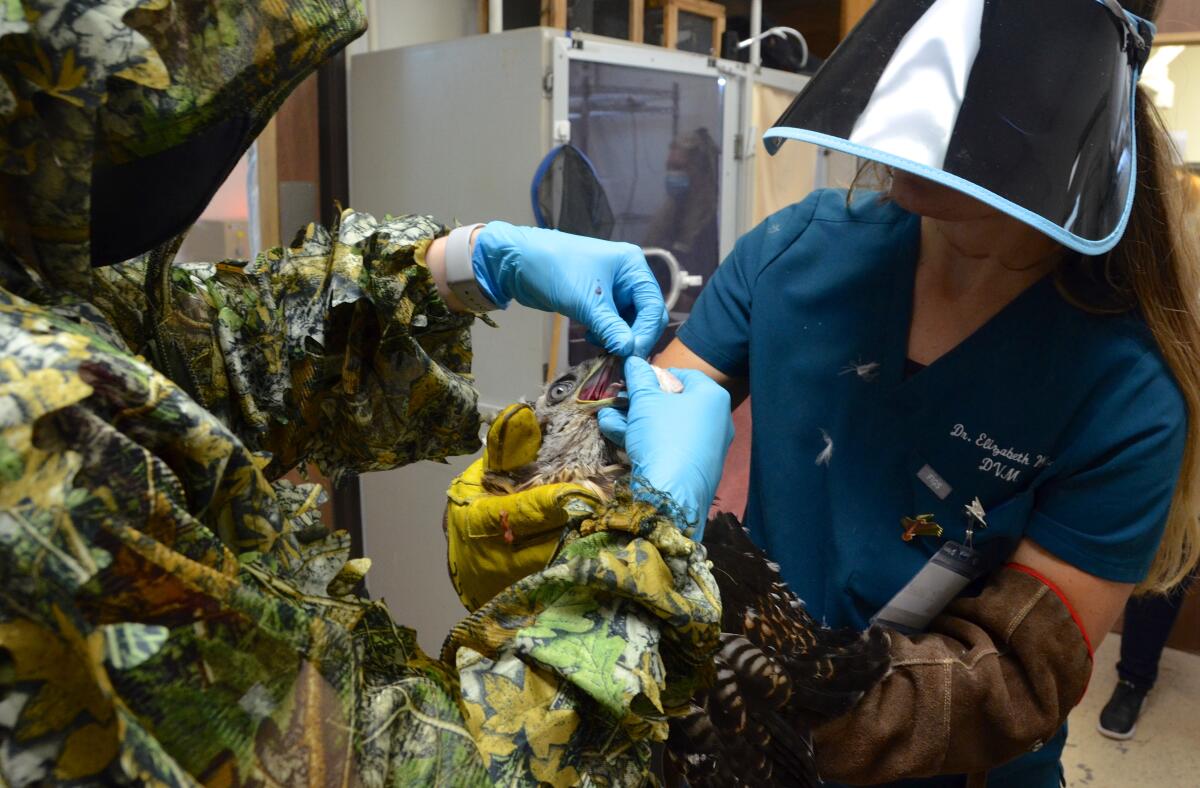
- Share via
About 1,500 people attended a Wildlife Baby Shower on Saturday, some standing in line for up to an hour, for an annual fundraiser held at Wetlands & Wildlife Care Center in Huntington Beach.
“I’m really excited about the baby shower after not being able to do it for three years,” said Executive Director Debbie McGuire. “Two years [without public events] was because of [the COVID-19 pandemic] and last year was because of the highly pathogenic avian influenza, H5N1, which appeared for the first time in California and is 99% fatal to bird species.”
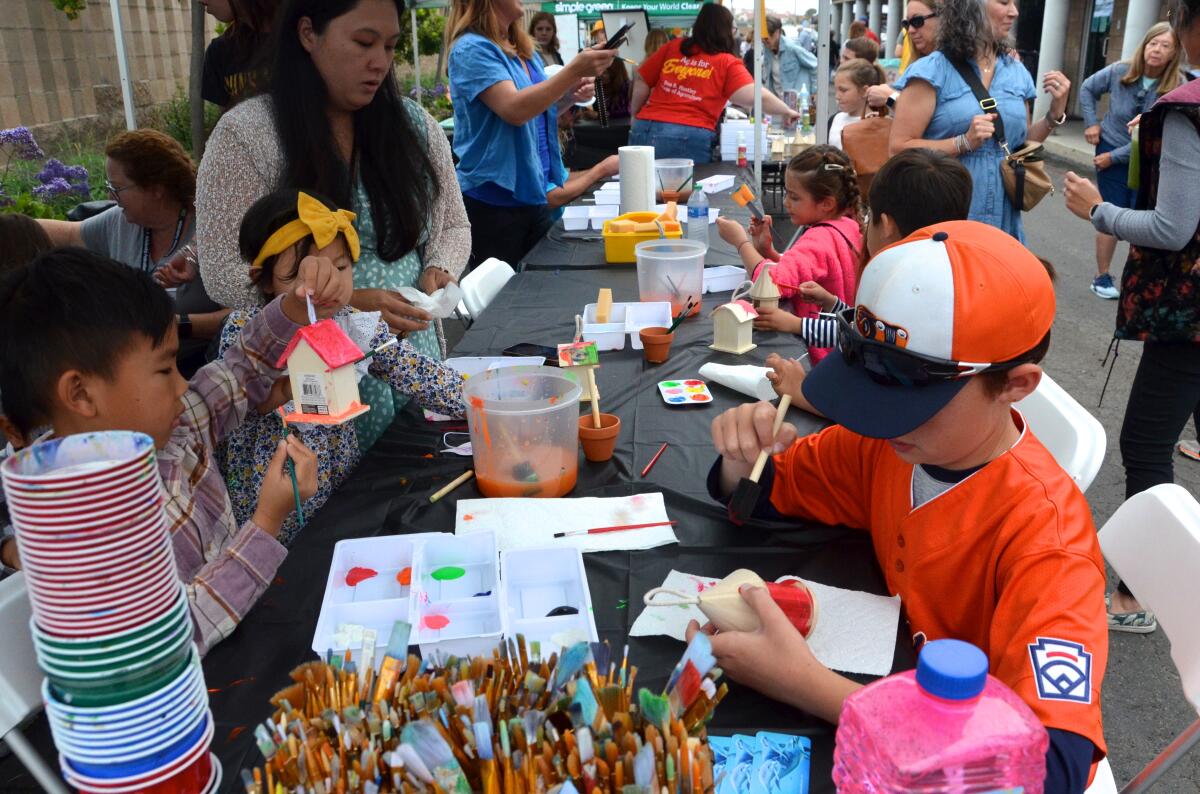
Center officials felt confident that after biosecurity screening protocols were in place — including closed-toe shoes and step-through foot baths — they could safely open up for the baby shower this year.
The Wetlands & Wildlife Care Center, which serves injured animals and orphaned wildlife, is able to rehabilitate over 400 animals at a time with the help of experienced professionals and volunteers including veterinarians and trained wildlife technicians, officials said.
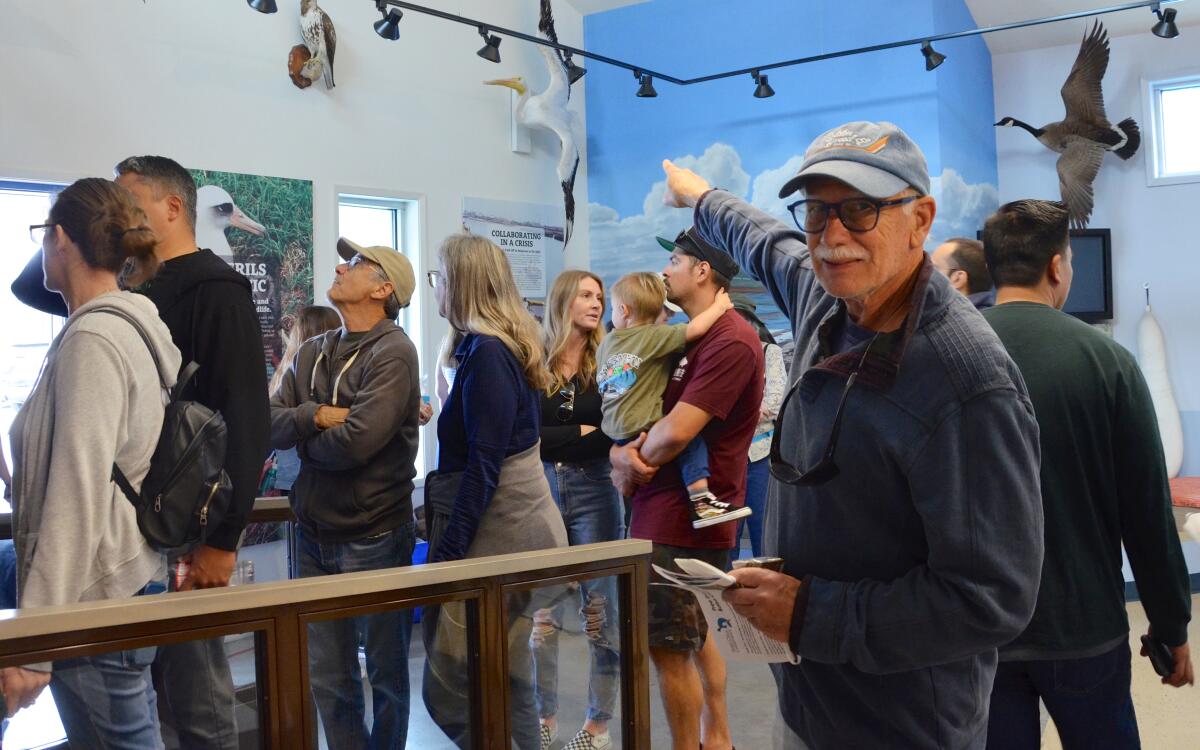
During the event, veterinarian Elizabeth Wood and wildlife technician Lindsey Campbell were found medicating and feeding a juvenile red-tailed hawk, a two-person task. The hawk had recently undergone surgery to repair a broken leg but seemed to have no problem exercising its independence by fanning its enormous wings.
Wood held the hawk’s wings down to allow Campbell to place a dropper of antibiotics into the patient’s mouth. Once the dosage was administered, the boisterous raptor was rewarded with a meal consisting of pieces of a mouse.
“Every day is different,” Wood said. “Each day we encounter all sorts of new medical issues and apply what we know from previous cases.”
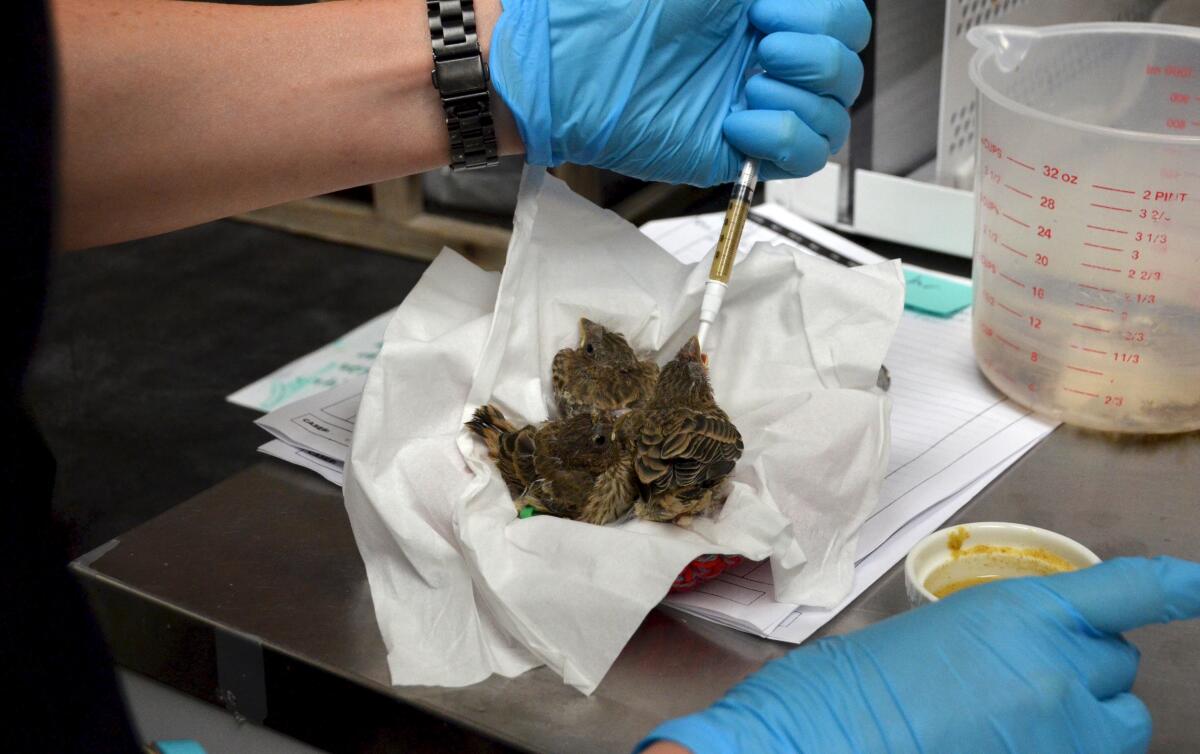
She explained that with the ever changing job they have to be flexible with their treatment plans.
“I’ve always loved applying veterinary medicine to the field of conservation and wildlife, which is a way to make a healthy impact [on] our local ecosystem,” Wood said.
Mark Ontkean, who lives nearby, said he frequently visits the center both for enjoyment and to do his part to support the care and rehabilitation of native wildlife. He said he has brought injured birds like sparrows, wrens and others to the care center.
“We love and want to support the conservation,” Ontkean said. “A facility like this is really important in helping various species to survive.”
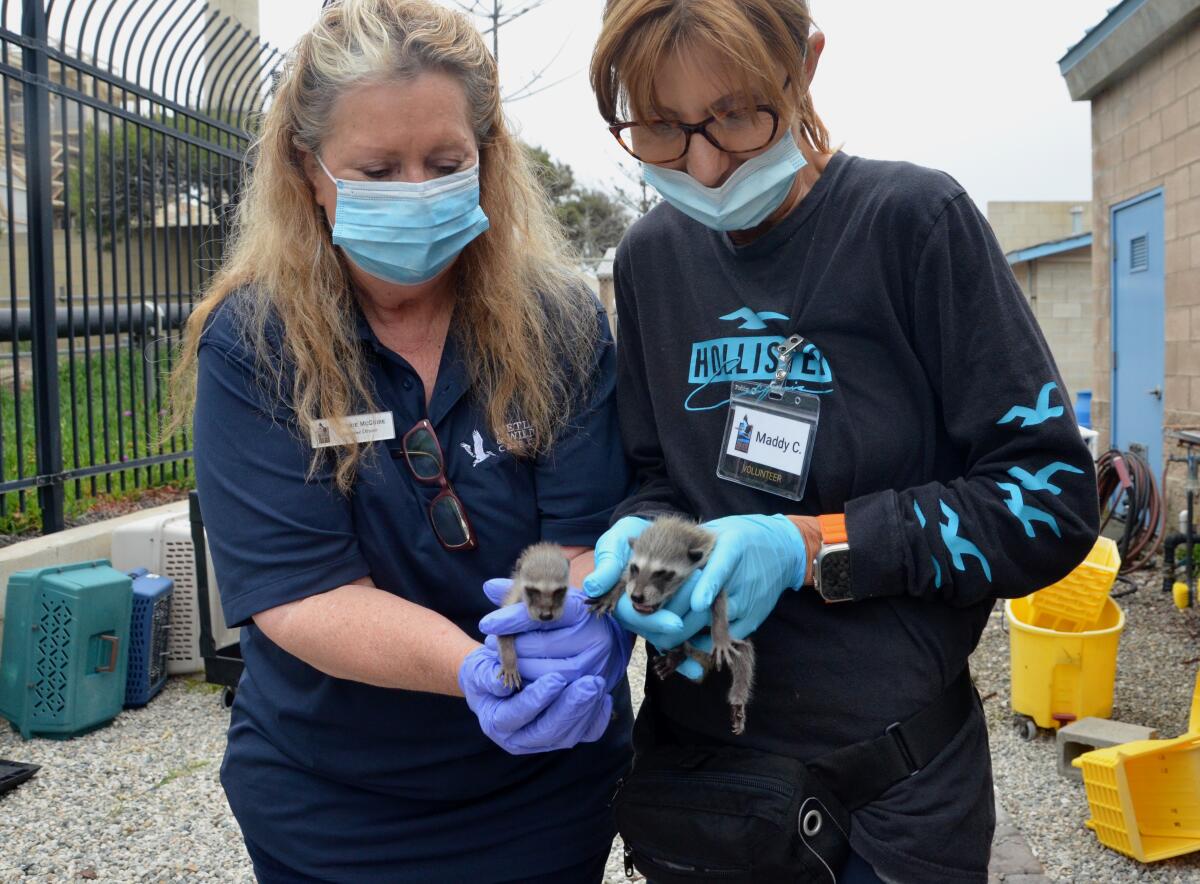
According to McGuire, people frequently drop off all kinds of wildlife. Most recently, a Costa Mesa resident who had been camping in the San Bernardino Mountains brought in a family of orphaned baby chipmunks that had found their way inside the family camper.
“We’ll raise them, and then when they are big enough to be released and socialized we’ll let them go and take them back where they came from,” said McGuire, who added she was hopeful the creatures would reunite with their family.
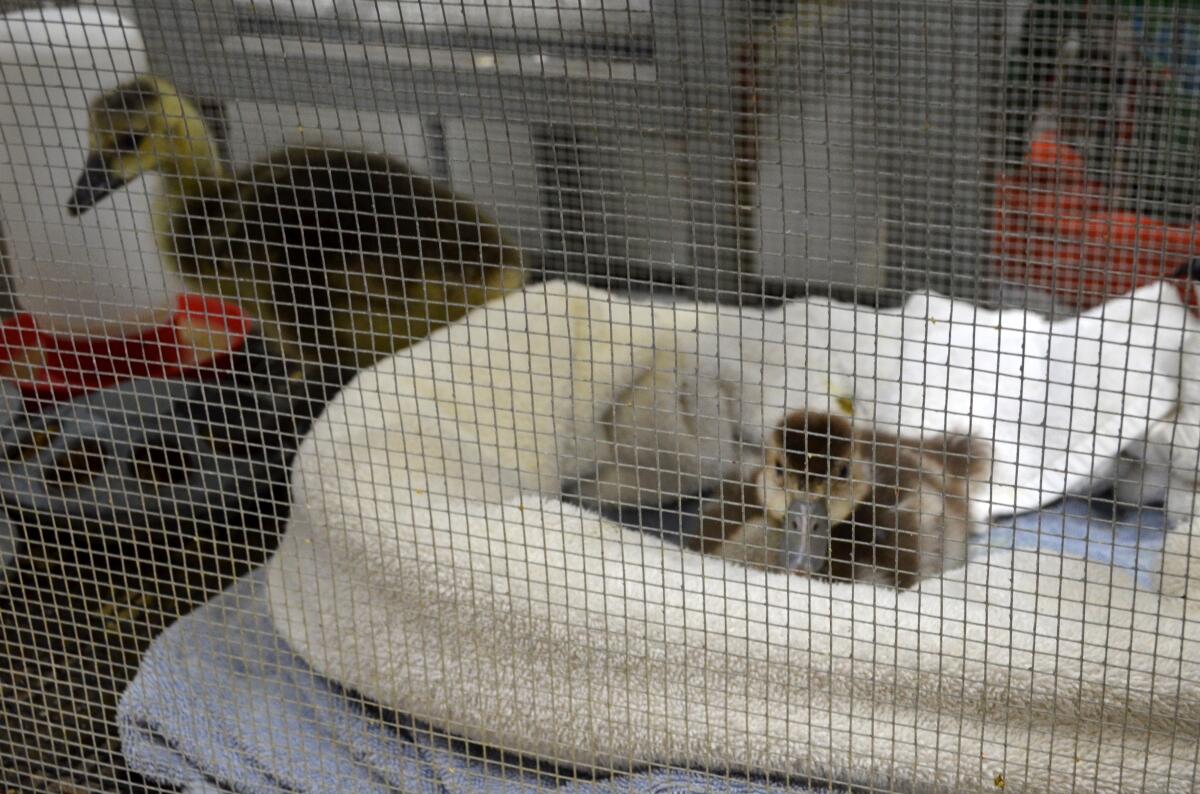
The Wetlands & Wildlife Care Center offers tips for what to do if you encounter a wild creature that might be in need of assistance. For more information go to wwccoc.org.
All the latest on Orange County from Orange County.
Get our free TimesOC newsletter.
You may occasionally receive promotional content from the Daily Pilot.



